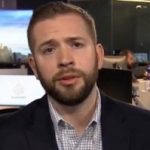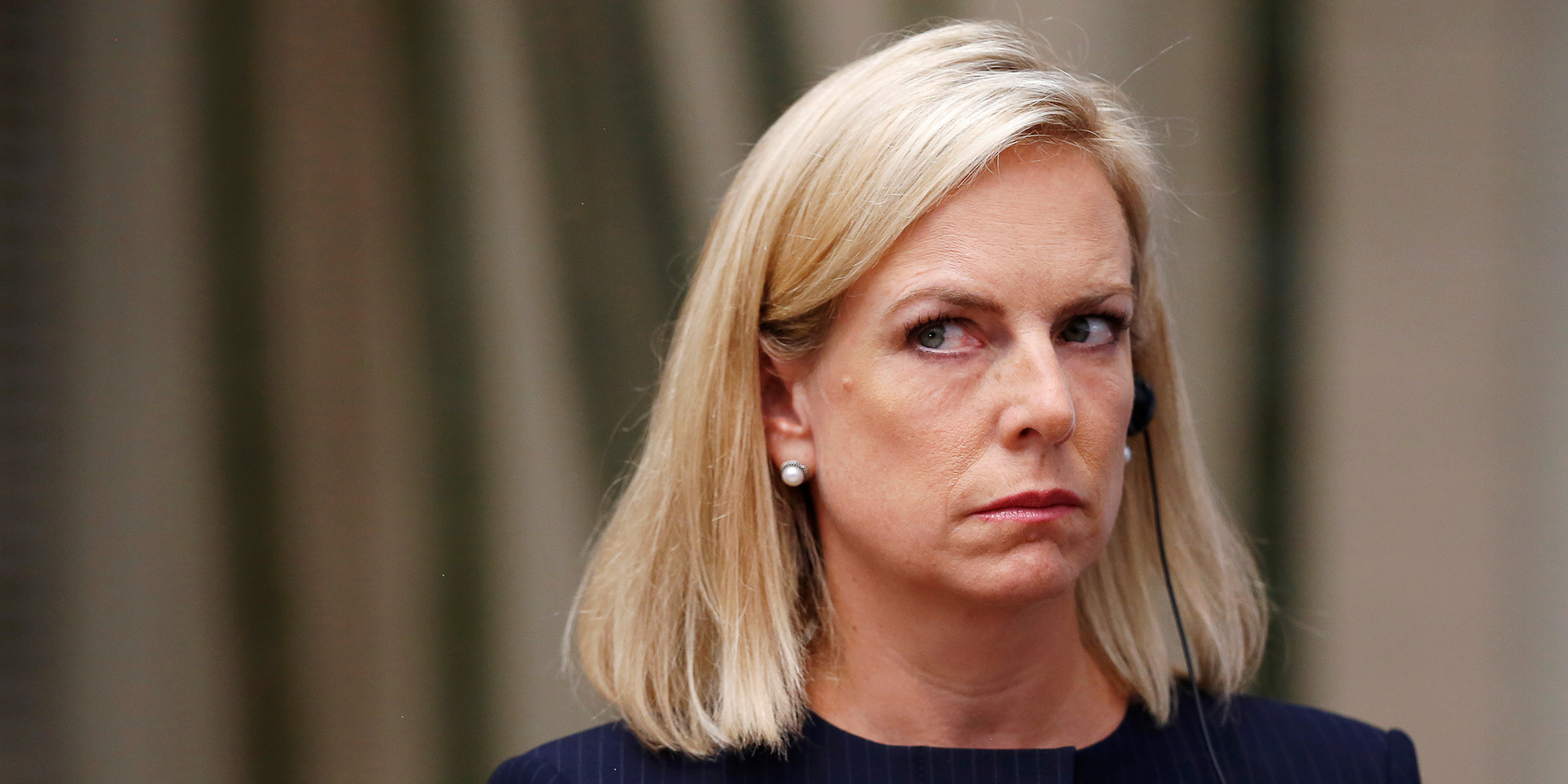- Homeland Security chief Kirstjen Nielsen on Thursday said she believed Russia interfered in the 2016 US election but questioned whether it really did so to help President Donald Trump.
- The US intelligence community explicitly concluded that Russian President Vladimir Putin directed the election meddling to bolster Trump’s chances of winning.
- The Trump administration’s position on Russian meddling has been inconsistent, especially over the past week.
Homeland Security chief Kirstjen Nielsen on Thursday said she agreed with the US intelligence community’s assessment that Russia interfered in the US presidential election but questioned whether the Kremlin really did so to further President Donald Trump’s chances of winning.
“Russia was absolutely attempting to interfere in our election systems,” Nielsen told moderator Peter Alexander of NBC News during an interview at the Aspen Security Forum.
But when asked whether she believed Russia meddled in the election to help Trump, Nielsen said, “I haven’t seen any evidence that the attempts to interfere in our election infrastructure was to favor a particular political party.”
She added, “I think what we’ve seen on the foreign influence side is they were attempting to intervene and cause chaos on both sides, right, whether it was in Charlottesville where we saw them on both sides, whether it’s in Syria, both sides.”
Nielsen said she believed Russia interfered in the election to "sow discord and get us all to fight against each other."
WATCH: "I don't think there's any question in the intel community or at DHS that Russians attempted to infiltrate and interfere with our electoral system ... I don't think there's any doubt that they did it," Sec. Nielsen says at the Aspen Security Forum. pic.twitter.com/NiRvbcCAz9
— MSNBC (@MSNBC) July 19, 2018
The Homeland Security chief was pressed further on the subject during a question and answer session with the audience, and though she said she agreed with the intelligence community's assessment "full stop," she did not clarify whether she believed Russia was out to bolster Trump's chances of winning.
'The Russian Government developed a clear preference for President-elect Trump'
Nielsen's comments are significant given the intelligence community explicitly concluded that Russia interfered to help Trump.
"Russian President Vladimir Putin ordered an influence campaign in 2016 aimed at the US presidential election," a declassified January 2017 report from the CIA, NSA, FBI, and director of national intelligence said. "Russia's goals were to undermine public faith in the US democratic process, denigrate Secretary Clinton, and harm her electability and potential presidency."
"We further assess that Putin and the Russian Government developed a clear preference for President-elect Trump," the report added.
Moreover, during a joint press conference in Helsinki, Finland on Monday, Putin said he'd hoped Trump would win the election.
"Yes, I did. Yes, I did," Putin said when asked if he'd wanted Trump to win. "Because he talked about bringing the US-Russia relationship back to normal."
Trump's back-and-forth on Russian election interference
Nielsen's muddled response on Russian election interference comes during a week in which Trump has been accused of siding with Putin, who has denied the Kremlin meddled in the election, over the US intelligence community.
Trump on Monday said he didn't see "any reason" why it "would" be Russia who interfered in the US presidential election.
Trump: "My people came to me, [Director of National Intelligence] Dan Coats came to me, some others, they said they think it's Russia. I have President Putin. He just said it's not Russia. I will say this, I don't see any reason why it would be." pic.twitter.com/p6kfkGw5pC
— MSNBC (@MSNBC) July 16, 2018
After he returned to the US, the president walked this back and claimed to have misspoken, stating he meant to say he didn't see any reason it "wouldn't" be Russia.
But during Monday's press conference, Trump made a number of comments suggesting he believed Putin, including that the Russian leader's denials had been "powerful."
On Wednesday, Trump also said he did not believe Russia was planning future attacks on US elections when questioned by a reporter, contradicting recent statements made by Director of National Intelligence Dan Coats.
President Trump responds 'No' when asked if Russia is still targeting the United States pic.twitter.com/oy9xeUI0FM
— Axios (@axios) July 18, 2018
But later in the day, the White House claimed Trump didn't intend to say Russia isn't targeting the US for future attacks on its electoral process.

